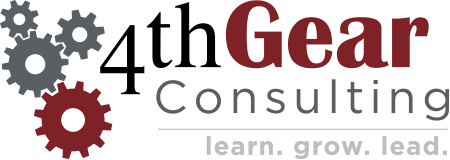If you are in sales, project management, or another kind of individual contributor role, it’s relatively easy to understand and measure your impact. Leadership, however, can feel more subjective, soft, or even squishy. (Yes, I have heard people use the word “squishy” to define leadership skills.) It may feel at times that there’s no real scorecard by which to measure the success of a leader.
Leadership can best be measured by the impact it has on others. Those results show up in things like employee engagement, team culture, and individual growth. That, too, can feel overly subjective until we more clearly define it. The first step to building an impactful leadership process is to define exactly what we mean by it and quantify it as well as we can, despite the lack of easy or obvious metrics.
Here are some steps you can take to build a more effective leadership process that has an impact on others.
Work with others to create both achievement and development goals.
Learning increases capability and also increases engagement, but we often don’t set those developmental goals very well for our team. What are the things that individuals want to learn more about? What should they practice more often? How many times did they get a chance to present at a big meeting, contribute to strategic plans, be involved in a market analysis, or teach someone else how to execute an effective sales call? What is our goal for the year in terms of how we learn and practice things like this and what is our process for coaching around them? We have to focus not only on what someone does, but also on what they can improve. If we are ever going to achieve better outcomes, we have to focus first on better inputs, like individual capability.
Coach more proactively.
Reactive coaching is a response to a mistake or failure. Proactive coaching is about planning to be successful. Most of the coaching that occurs in business is reactive and while that can be valuable, if we are going to have greater impact we also need to focus on proactive coaching that happens before events or outcomes. How are you going to plan for the big meeting? What are your learning and development goals for the week? What will cause you to think more strategically around the proposal? How will you analyze client needs completely so you understand how to sell with them in mind? Proactive coaching is the only way to change the thoughts that drive individual actions. More often than not, I see managers simply giving instructions as to what someone should do differently next time because of a mistake. That should never be the most prominent form of coaching. It’s also a fairly simple process to measure the amount of proactive and reactive coaching we do for each individual on our team. I’ve watched people build elaborate spreadsheets that measure their own sales, even if the company measures it for them, but I have rarely seen a leader create a spreadsheet to measure proactive and reactive coaching discussions. If they did, they would have a great tool to more effectively analyze and refine their leadership process.
Assess progress often.
Unfortunately, the dreaded annual review permeates many businesses. Once a year, we provide employees feedback on whatever we happen to remember about their performance. Can you imagine how things might be different if college students only received a subjective final grade from the professor at the end of the year – with no way to track progress during the course? I’ve never seen any indication that annual performance reviews actually improve individual performance. They are mostly viewed as HR exercises executed to satisfy some internal business need, like calculating a raise, rather than an effective tool for developing people. Instead of annual reviews, meet with individuals monthly, or at the very least quarterly, to review their goals, proactively coach them, and measure their progress. Use assessments on a 5- or 10-point scale to score progress, practice, and achievements. Both the individual and the leader can rate progress and share their thoughts on any differences.
Your Job
Our job as leaders is to have impact on others. We simply can’t do that consistently without building a process for how we have impact. Find any leader who makes this a priority and you will discover a leader with a highly-engaged team comprised of individuals who are learning, growing, and achieving more. Your team will think differently, perform better, and become more capable because of the impact you have on them. That is what leadership is all about.
Leading Through Influence
We develop better leaders so they can build a better future. Contact Us to learn about leader development via our training, workshops and executive coaching.


